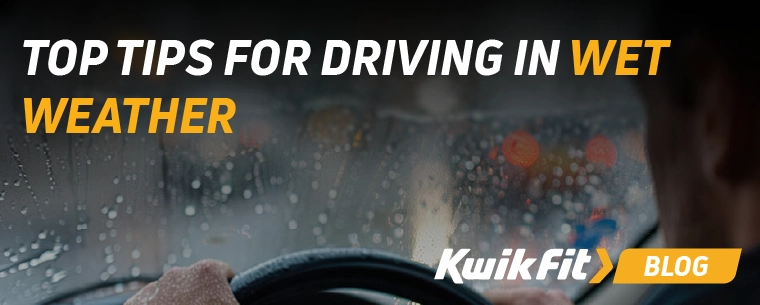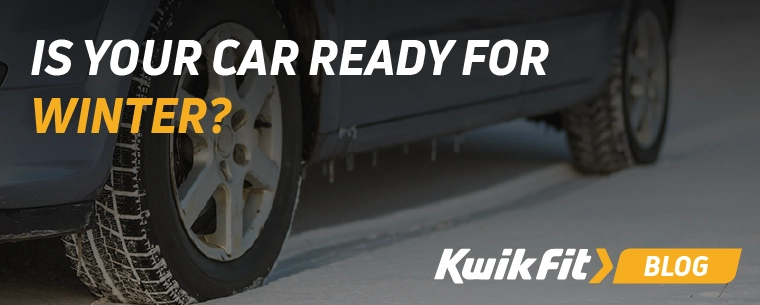6 Common Tyre Questions
| Thursday 9th August 2018 12:10pm

From tread depth to the correct tyre pressures, there are many common questions around how to ensure your tyres are safe. Find out more about some of the most commonly asked questions surrounding tyres.
Tyre manufacturers, such as Continental, provide vehicle safety advice and they play a key role in the campaign to ensure UK motorists are as safe on the road as they can be. As tyres are at the forefront of vehicle safety, make sure that they are safe by checking them regularly.
Do I really need to check my tyres?
Regular tyre checks are crucial for vehicle safety as they are vital for maintaining control of your vehicle.We recommend that you check your tyres on a regular basis not just occasionally. Safe tyres are crucial for driving safely as they’re the only part of the vehicle that is in contact with the road. However, this contact patch is only about the size of a smartphone so your tyres need to be in good condition. This is crucial for enabling you to brake quickly and safely.
What should I look out for when checking my tyres?
The main thing to look out for when inspecting your tyres is tyre wear. You should be looking at your tread depths and checking for any visual tyre damage. Your tyre pressures are also important as they have a major influence on tyre tread and damage. Tyres that aren't inflated to the correct pressure will wear down more quickly making your vehicle less safe and decreases the longevity of your tyres. If you check these regularly, you are ensuring that your vehicle is as safe as possible on the road.
What is good tread depth?
Your tread depths are important in ensuring that your vehicle can maintain grip on the road. If your vehicle doesn't have good grip on the roads, it is difficult to control your vehicle. Your treads (the grooves on your tyre) remove water from the road. If your tyres have good tread depth, we suggest a minimum of 3mm, they will cope better with wet weather conditions.
Although the UK road legal minimum is 1.6mm, anything under 3mm puts you at an increased risk of an accident in wet conditions. As your tyres can’t clear water as quickly, your stopping distances will be longer meaning that you won’t be able to come to a stop as quickly. If you have less than 1.6mm you are not only risking safety but also a fine and points on your licence.
What is a Tread Wear Indicator?
Tyres come with a tread wear indicator for 1.6mm. However, all Continental 5 series and above premium tyres, for example their award winning PremiumContact™ 6, have TWIs at 3mm too. This enables the driver to realise when the quality of their tyres is affecting stopping distances.
Why are tyre pressures important?
Tyre pressures are important in ensuring your tyres are safe. The recommended tyre pressure varies for different vehicles and it also depends on whether your vehicle is laden or unladen. These can easily be found in the inside of the driver door or the inside of your vehicle’s fuel cap.
Having the correct tyre pressures is important in terms of safety and performance. With the correct pressure, a tyre will be inflated to the correct shape so will not be subjected to uneven wear. As a result of this, regularly checking your tyre pressures is highly important.
If your tyres are under inflated, there is the risk of uneven tyre wear, often at the outside edges. This is due to the warped shape of an underinflated tyre. This means that the tyre makes contact with the road unevenly. This also results in more fuel being needed to turn your wheels. Over inflated tyres can also cause uneven wear. However, this takes place along the centre of the tyre where the main tread grooves are due to the changed tyre shape. There is also a higher chance of tyre blowout and puncture as over inflated tyres are less able to withstand shocks and impacts.
How long will my tyres last for?
The length of time your
tyres will last for depends on many factors. Some of these are out of your
control as a driver. However, the factors that you have control over include how often you drive, your driving style and the quality of your tyres.
For example, if you’re using your car for occasional short trips, your tyres will wear down more slowly than someone with a high amount of mileage, especially at high speeds.
Your tyre wear will also depend on the way you drive your vehicle. If you put more stress on your tyre, it will impact on tyre wear. If you frequently scuff your tyres on kerbs or regularly drive over potholes, your tyres will wear down more quickly.
The tyre itself is also a factor in how quickly a tyre will wear down. Although most tyres look similar, every tyre manufacturer uses different compounds for their products which affect how long the tyre will last. However, ultimately all tyres will wear down. Premium tyres, such as Continental’s SportContact™ 6 last longer than budget options as they are made from premium compounds that wear down less quickly.
Talk to Kwik Fit
If you’re unsure whether your tyres are safe or you need advice on new tyres, visit your local centre.
Any facts, figures and prices shown in our blog articles are correct at time of publication.
Featured Articles
Wet Weather Driving Tips – Staying Safe in the Rain
Friday 29th November 2024
Driving in heavy rain can be tricky and bring extra risks. Check out our guide for top tips to stay safe and avoid breakdowns if travelling in wet conditions.
Your Ultimate Winter Driving Checklist
Wednesday 27th November 2024
Driving in the colder months presents many challenges. Breakdowns are far more common in winter, so make sure you’re prepared with these essentials.
Is Your Car Battery Ready for Winter?
Monday 11th November 2024
Is the UK on the verge of ‘the coldest winter for 50 years?’ Even if El Niño doesn't hit the UK this winter, reduce the risk of a winter breakdown by making sure your car battery is winter-ready.









